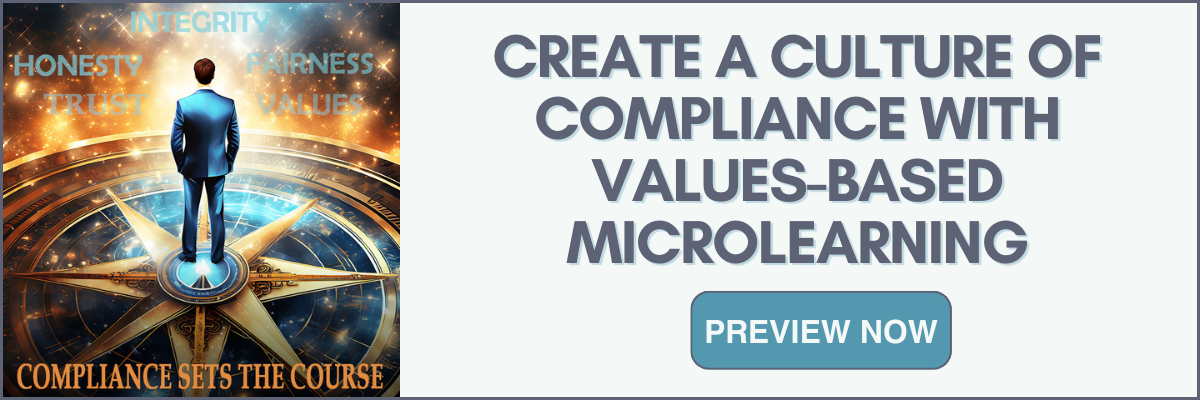In the dynamic landscape of modern businesses, many compliance officers are increasingly recognizing that traditional approaches to compliance training are becoming insufficient at instilling adherence to rules and regulations .
The heart of the matter lies in the need to cultivate a culture of compliance that permeates every layer of the organization. Fostering such a culture not only enhances the effectiveness of compliance policies but also fundamentally transforms employees’ attitudes towards their work and ethical responsibilities by aligning with the intrinsic values of employees.
The Limitations of Compliance Training
Traditional compliance training, while essential, often focuses on the “what” – what rules to follow, what laws apply, and what the consequences of non-compliance are. However, it frequently overlooks the “why” and the “how” – why these policies matter and how to integrate them into daily work life. Training sessions can become check-the-box activities, where employees passively receive information without internalizing its importance or understanding its practical application.
The Power of a Compliance Culture
A culture of compliance goes beyond mere knowledge of rules; it involves creating an environment where ethical practices and integrity are at the core of every decision and action. This culture is reflected in everyday behaviors, decision-making processes, and the ways in which employees interact with each other and with stakeholders. Here’s how such a culture impacts the workplace:
- Empowerment and Ownership: Employees feel empowered and take ownership of their actions when they understand the significance of compliance within the context of their roles. This sense of responsibility encourages proactive compliance and ethical behavior.
- Influence of Leadership: Leaders play a crucial role in shaping organizational culture. When leaders consistently model ethical behavior and prioritize compliance, it sets a standard for the entire organization, creating an environment where employees feel supported in their efforts to adhere to compliance policies.
- Peer Influence: A strong culture of compliance fosters an environment where peers positively influence each other, promoting a collective commitment to ethical practices and legal adherence.
Strategies for Fostering a Culture of Compliance
For compliance officers aiming to cultivate this culture, several strategies can be pivotal:
- Leadership Engagement: Ensure that leaders at all levels understand their role in modeling compliance and ethics.
- Communicate the Why: Make the reasons behind policies and procedures clear, connecting them to the company’s values and mission.
- Recognize and Reward Compliance: Implement recognition programs that reward ethical behavior and compliance, reinforcing their value.
- Encourage Open Dialogue: Foster an environment where employees feel comfortable discussing ethical dilemmas and compliance concerns.
- Align Policies with Values: Review and adjust policies to ensure they reflect the company’s core values, making it easier for employees to see their personal ethics reflected in their workplace responsibilities.
For compliance officers, the challenge extends beyond ensuring that employees are trained on the latest regulations. The goal is to embed a culture of compliance so deeply that ethical and legally compliant choices become second nature to every employee. By focusing on the cultivation of this culture, organizations can not only meet their legal obligations but also create a workplace that employees are proud to be a part of, where their personal values align with their professional actions. The path to compliance lies not in simply training alone, but in the heart of the company culture itself.
__________________________________________________________________________
